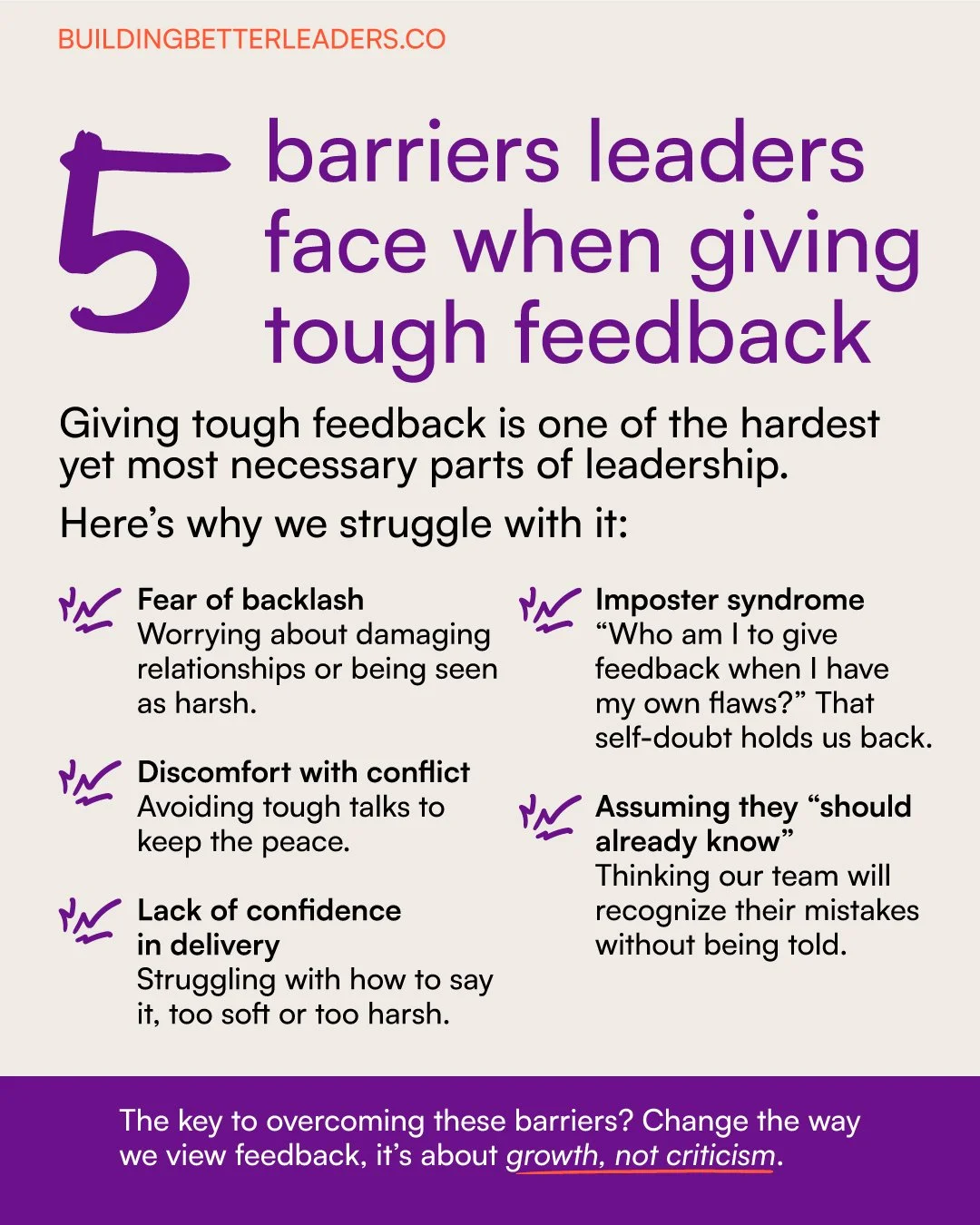5 common barriers leaders face when giving difficult feedback
Giving tough feedback is one of the most uncomfortable yet necessary responsibilities of leadership. However, many of us struggle with it, often avoiding it altogether.
I’m particularly passionate about this area of leadership because I’ve struggled with it myself. I’ve lost teammates and friendships because of these barriers. I’ve learned that delaying difficult conversations only erodes trust over time. While I’ve gotten better at having these discussions, there’s always room for improvement.
Here’s why we struggle:
Fear of Backlash
We often avoid tough conversations because we worry about damaging relationships, facing backlash, or being labelled as harsh. The fear of how someone might react can make feedback feel like a risky move.Discomfort with Conflict
The emotional weight of difficult feedback can be overwhelming. Whether it’s a need to be liked or simply triggered by the sound of two people arguing, we may tolerate poor performance for the sake of keeping the peace.Lack of Confidence in Delivery
We know what needs to be said, but we struggle with how to say it. Without a structured approach, we may either soften the message too much—making it unclear—or deliver it too harshly, causing unnecessary tension.Imposter Syndrome
We fear that giving feedback will expose our own weaknesses. We may wonder, “Who am I to critique others when I have my own flaws?” This self-doubt can hold us back from addressing important performance issues.Assuming People “Should Already Know”
A common misconception is that our team members should instinctively recognize their shortcomings. However, what seems obvious to a leader may not be clear to the individual. Without direct feedback, ineffective behaviours can persist simply because no one has pointed them out.
The key to overcoming these challenges is shifting our mindset from giving negative feedback to having growth conversations. When we approach feedback as an opportunity to help others improve, it becomes less about criticism and more about development.
Do you agree with these barriers?

